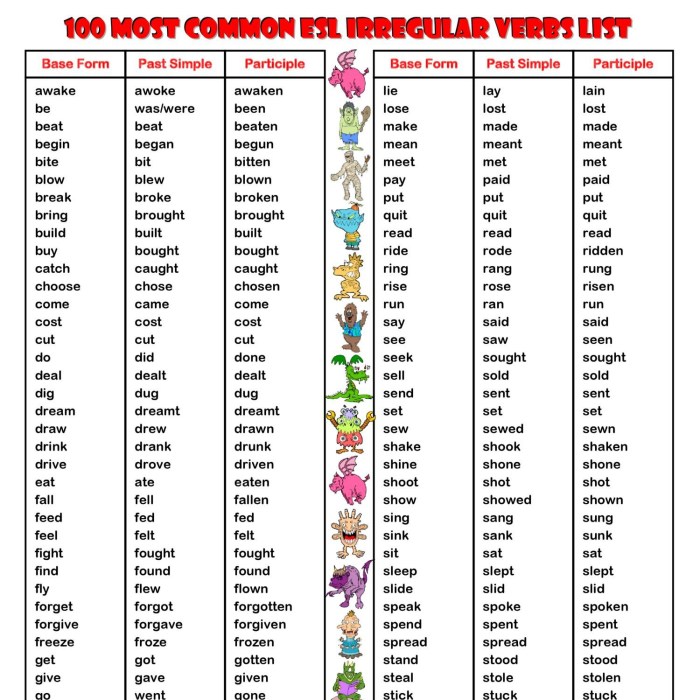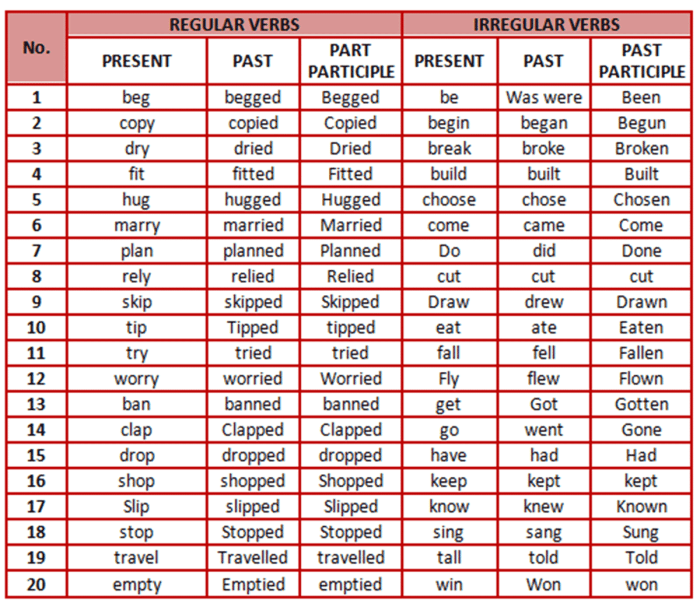Call es un verbo regular o irregular – Al adentrarnos en el fascinante mundo de la gramática española, surge una cuestión fundamental: ¿es “call” un verbo regular o irregular? Esta distinción lingüística es crucial para comprender su conjugación y uso preciso en el habla y la escritura. En este análisis, exploraremos las características de los verbos regulares e irregulares, determinaremos la naturaleza de “call” y destacaremos su importancia en el dominio del idioma español.
Para comenzar, los verbos regulares siguen patrones de conjugación predecibles, mientras que los irregulares se desvían de estas normas, lo que requiere memorización. El verbo “call” presenta una conjugación consistente, lo que lo clasifica como un verbo regular.
Verbs in Spanish

In Spanish, verbs are classified as either regular or irregular. Regular verbs follow predictable conjugation patterns, while irregular verbs have unique conjugations that must be memorized.
Regular Verbs
- Characteristics:
- End in -ar, -er, or -ir in the infinitive form.
- Follow consistent conjugation patterns in all tenses and moods.
- Examples:
- hablar (to speak)
- comer (to eat)
- vivir (to live)
Irregular Verbs
- Common irregular verbs:
- ser (to be)
- estar (to be)
- ir (to go)
- ver (to see)
- hacer (to do)
- Patterns:
- Stem-changing verbs: change the vowel in the stem depending on the tense or mood.
- Suppletive verbs: use different stems for different forms.
- Importance:
- Irregular verbs are common in Spanish and must be memorized for accurate communication.
The Verb “Call”, Call es un verbo regular o irregular
The verb “call” in Spanish is “llamar”. It is a regular verb that follows the -ar conjugation pattern.
- Present tense conjugation:
- yo llamo (I call)
- tú llamas (you call)
- él/ella llama (he/she calls)
- nosotros llamamos (we call)
- vosotros llamáis (you all call)
- ellos/ellas llaman (they call)
- Root: llam-
- Regularity: The verb “call” is regular because it follows the predictable conjugation pattern for
ar verbs.
Regular Verbs Conjugation Table
| Person | -ar | -er | -ir |
|---|---|---|---|
| yo | -o | -o | -o |
| tú | -as | -es | -es |
| él/ella | -a | -e | -e |
| nosotros | -amos | -emos | -imos |
| vosotros | -áis | -éis | -ís |
| ellos/ellas | -an | -en | -en |
Note:The root of the verb is used to form the stem for all other conjugations.
Past Participle of Regular Verbs
The past participle of regular verbs is formed by adding -ado for -ar verbs and -ido for -er and -ir verbs.
- hablar (to speak) → hablado
- comer (to eat) → comido
- vivir (to live) → vivido
FAQ Compilation: Call Es Un Verbo Regular O Irregular
¿Qué es un verbo regular?
Un verbo regular es aquel que sigue patrones de conjugación predecibles en todos los tiempos y modos.
¿Qué es un verbo irregular?
Un verbo irregular es aquel que no sigue los patrones de conjugación regulares y requiere memorización.
¿Por qué es importante conocer la diferencia entre verbos regulares e irregulares?
Conocer la diferencia ayuda a conjugar correctamente los verbos, lo que es esencial para la comunicación precisa en español.


